|
Grandma's Rice Vinegar and
|
|||||||||
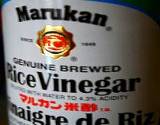 | 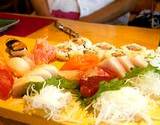 | 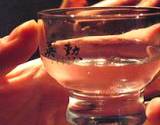 |
Taking Vinegar and Honey as a life enhancing Tonic is more than merely an American custom. In Japan it is an old favorite, too.
Japan's most famous vinegar is made from rice. The bulk of Japanese commercial vinegar is made from wine leftovers. The sediment left from the production of the rice wine called "sake" is used to make industrial vinegar. These dregs, called "lees," produce a vinegar which is similar in nutrient value to America's white vinegar.
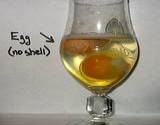 | 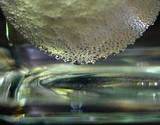 | 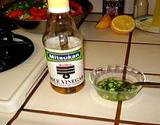 |
The Healing Power of Rice Vinegar
Some ways of using vinegar that have endured for centuries - and some of Japan's newest research into the healing power of rice vinegar follow:
- Vinegar made directly from brown rice has five times the amount of amino acids as the commercial product made from lees. Perhaps the healthful benefits of rice vinegar are because of the 20 amino acids it contains. Or maybe it is the 16 organic acids which can be found in it.
- The bottom of the bottle of even the best rice vinegar will have a fine rice sediment. When these grounds are disturbed they give the vinegar a muddy appearance. This dark residue is considered to be the mark of a high quality rice vinegar.
- Vinegar helps to maintain good health and slow down aging by helping to prevent the formation of two fatty peroxides. This is important to good health and long life in two important ways. One is associated with damaging free radicals. The other with the cholesterol formations which build up on blood vessel walls.
- In Japan, vinegar is used to produce one of that country's most potent folk remedies. Tamago-su, or egg vinegar, is made by immersing a whole raw egg in a cup of rice vinegar. The egg and vinegar are allowed to set, undisturbed, for seven days. During this time the vinegar dissolves the egg, shell and all.
- At the end of one week the only part of the egg which has not been dissolved is the transparent membrane, located just inside the shell. The Tamago-su maker splits open the membrane and dumps the contents into the glass of vinegar. This piece of the egg is discarded and what remains is thoroughly mixed.
- A small amount of this very powerful egg vinegar is taken three times a day, stirred into a glass of hot water. It is believed it will assure a long healthy life. Traditionally, Samurai warriors considered egg vinegar tonic to be an important source of strength and power.
- Vinegar is used as a bleaching agent on white vegetables. It also prevents enzymatic browning. When foods do not darken in air, they do not develop the off-taste associated with browning. Rice vinegar is also used in salad dressings, marinades, sauces, dips, and spreads.
- Rice vinegar (like all vinegars) is a powerful antiseptic. It kills, on contact, dangerous bacteria such as salmonella and streptococcus.
- The sushi industry is largely dependent on vinegar's ability to prevent germs from growing on the raw fish. It is sprinkled on the fish, included in dipping sauces, and used as a preservative.
- Vinegar acts as a tenderizer on meats and vegetables used in stir-fry dishes.
- Japanese housewives add a little rice vinegar to summer rice to prevent it from spoiling.
- Vinegar, added to fish dishes, helps to eliminate the traditional fishy odor. It also helps get rid of fish smells at clean up time.
- Without vinegar there would be no sushi.
|
The statements made here have not been approved by the Food and Drug Administration. These statements are not intended to diagnose, treat or cure or prevent any disease. This notice is required by the Federal Food, Drug and Cosmetic Act.
|





